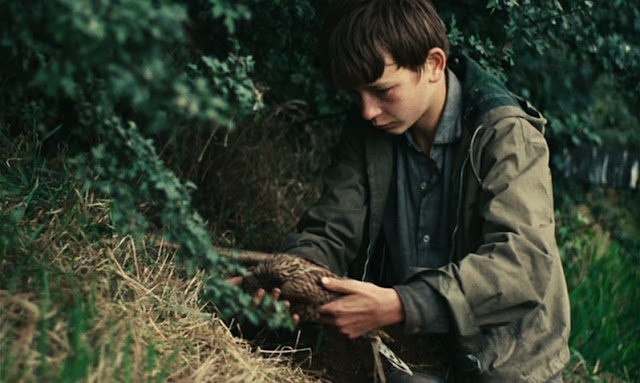THE
ISLAND
A film by Pavel Lungin
2006/ Russia/ 112 minutes
5.45 pm / Perks Mini Theater
http://konangalfilmsociety.blogspot.in/
Russian
Orthodox monk Anatoly lives on a remote island in the frigid White Sea, where
he is tormented by guilt from a cowardly “sin” committed years ago under Nazi
coercion. Anatoly shovels coal
briquettes and pushes wheelbarrows across rickety planks to repent for his
iniquities. He considers himself as “stained” by sin, and accordingly neglects
his body till it is as unkempt as his soul.
Anatoly doesn’t bathe (despite his soot-coated
accommodations), much to the dismay of his fellow monks. The sailor-turned-saint hopes said reason
will cleanse him of sin when his time to leave the world does come. Other monks—including superior Father
Filaret—find Anatoly an obnoxious prankster who speaks in riddles and “cultivates
superstition” among laypeople.
The Island is
a study of forgiveness (of oneself and others) whose title—poet John Donne
might agree—references one man’s inner isolation as well as his geographic
remoteness. And while arctic environs
are harsh, director Pavel Lounguine collages some beautiful imagery (all
symbolic) here—from craggy rocks and lichen-covered hills to raging waters and
charred timbers. (From Internet)
Pavel
Semyonovich Lungin s a Russian film director.
Lungin worked primarily as a scriptwriter until given the opportunity to
direct Taxi Blues at age 40. Lungin was awarded the Best Director Prize at 1990
Cannes Film Festival for the film Taxi Blues starring Pyotr Mamonov. That same
year he took up residence in France, while making films in and about Russia with
French producers. Two years later, his next film Luna Park would also compete
at the 1992 Cannes Film Festival. In 1993 he was a member of the jury at the
18th Moscow International Film Festival.
Lungin’s last
film Ostrov (The Island, 2006) is a penetrating drama of sublimation of the
soul. According to the official site of Lungin Studio, in the mid October the
film-director finished another feature film under the title Cruelty. In 2007
Lungin is going to release Vetka Sireni (Lilacs), a life story of Sergei
Rachmaninoff.
















